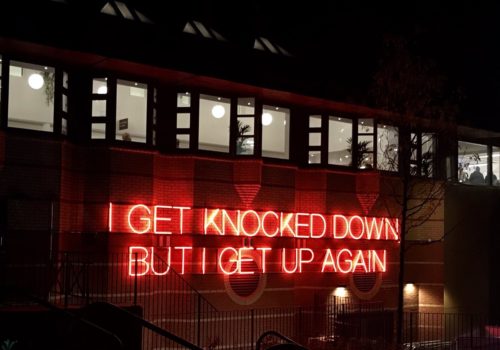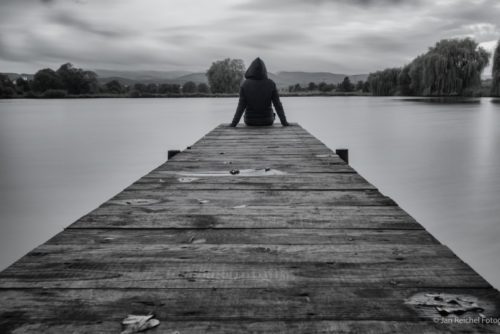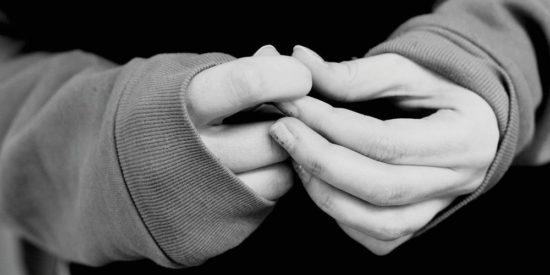Café Psychologique during Lockdown
We have had to postpone our future cafés until we are able to meet in person again. We have looked at running the cafés online but decided we could not recreate the things that make café psychologique so special. So instead shall save up the topics we would have been looking at until we can all be in the same room again.
We hope to be talking and thinking over a drink with you again very soon.
Extinction Rebellion: thinking the unthinkable. Café Psychologique, 25 February
The climate crisis is upon us and Extinction Rebellion are at the forefront of pressing all of us to respond. However, the challenges are as much psychological as practical. Extinction Rebellion seems to require us to switch our thinking to emergency mode while life seems to carry on as normal. This is psychologically very difficult to do.
We also have now seen evidence of Extinction Rebellion being regarded as extremist by the government and police, and we might be tempted to see their actions and demands as extreme ourselves. However, perhaps we all need to embrace or at least redefine extremism in this context.
There is a particular problem in helping young children engage with the climate crisis. They need to understand it and yet simply terrifying them is unconstructive and inappropriate. So schools, parents and granparents all need to think about how to help them engage and even lead climate protests without making them feel hopeless and helpless. We also need to prepare them for life in a world which may change beyond our present recognition.
Perhaps the most tricky psychological issue is whether hope is helpful or hinders in relation to the climate crisis. Is hope necessary to spur us to action, or does it make us complacent and forgetful of the extreme challenge of what we face and its catastrophic consequence.
Prime Minister Johnson disparagingly labelled Extinction Rebellion protesters ‘uncooperative crusties’. Our conversation at Café Psychologique will be introduced by self-identified Cooperative Crusty, Bill Phelps, on Tuesday 25 February 8.00 pm to 9.45 pm in Seven Arts, Chapel Allerton, Leeds. The Café costs £4 on the door.
There is a poster to download here:
Café Psychologique Feb Mar Apr 2020
You can read how the Café works here:
Café Psychologique Rules
Failure: one thing I know I’m good at. Café Psychologique, 28 January 2020
One things can be certain this January… resolutions will be broken. Come along to café psychologique to celebrate our failures, understand them, and embrace them as part of being fully human.
Our conversation will be introduced by Dr Carol Martin, Clinical Psychologist, on Tuesday 28 January 8.00 pm to 9.45 pm in Seven Arts, Chapel Allerton, Leeds. The Café costs £4 on the door.
There is a poster to download here:
Café Psychologique Jan Feb Mar 2020
You can read how the Café works here:
Café Psychologique Rules
Menopause: rebirth or living hell? Café Psychologique, Tuesday 26 November
Weepy and anxious or roaring like a lioness, menopause effects most women (and there’s some evidence men too), yet little is still known about the mind/body changes women experience in ageing. Join us for an open and respectful evening of sharing experiences, asking questions you wouldn’t ask your GP (let alone your mother) or just getting something off your chest. Everyone welcome, whether you’re before ‘it’, in the throws of ‘it’, over ‘it’, or feeling the brunt of ‘it’.
Our conversation will be introduced by Anna Douglas, Café Psychologiste, on Tuesday 26 November, 8.00 pm to 9.45 pm in Seven Arts, Chapel Allerton, Leeds. The Café costs £4 on the door.
There is a poster to download here:
Café Psychologique Nov 2019
You can read how the Café works here:
Café Psychologique Rules
Democracy. Café Psychologique 22 October, 8.00 pm
In the eye of the beholder?
It seems Britons can’t agree what democracy is. The debate about the drawbacks of our democratic system are as old as it is. We even had a half-hearted stab at thinking about whether alternative voting systemwould be more fitting in 2011. However, there now seems to be a significant challenge to the nature of our representational model. Currently MPs are being held up either as the last democratic bastion against charismatic executive leadership (often depicted as dictatorial or fascist) or else as thwarting the democratically expressed ‘will of the people’ (often depicted as a liberal elite). In popular exchange at least, the position taken seems to hinge less on a thoughtful understanding of governmental, legislative and constitutional processes, and more on whose side is in favour of your preferred outcome to Brexit.
So the current debate about Brexit exposes not just deep rooted differences in views about Europe, but about our collective understanding of how we wish to be governed and what we think democracy is. It’s also easy to forget that what we commonly believe democracy to be is only one of more than 57 varieities globally. It also throws into question our relationship to the whole social order. Why can children not vote when pretty much all the arguments deployed against lowering the age of voting are identical to the arguments deployed against extending the vote to women, slaves and tenants? Do we really want a direct say in everything that affects us individually and collectively? And why does having a particular parent mean you can decide whether to close parliament or not?
This café will offer chance to think about the role of psychology in understanding how we see democracy and the forces that shape our indvidual and collective understandings of democracy and politics.
The conversation will be introduced by Dr Kris Dunn, Lecturer in Comparative Politics and Political Psychology, University of Leeds, on Tuesday 22 October, 8.00 pm to 9.45 pm in Seven Arts, Chapel Allerton, Leeds. The Café costs £4 on the door.
There is a poster to download here:
Café Psychologique Oct 2019
You can read how the Café works here:
Café Psychologique Rules
Loneliness, Café Psychologique, 24 September
Research by the BBC in 2018 showed that over a third of British people feel lonely often or very often. That rises to over 40% among young people. Government statistics show that 2.5 million Britons are chronically lonely.
However, loneliness is not the same as being alone. A large majority of people – 83% – said that can be a positive thing sometimes. Feeling lonely seems to be more about having no one to talk to, feeling disconnected from the world, feeling left out, and not feeling understood.
Loneliness itself is not a mental health problem but the two are strongly linked. Loneliness is also associated with a wide variety of physical and social difficulties.
This café will explore loneliness, its causes, the differences from just being alone, and how to respond as individuals and as communities to our own and others’ loneliness.
The conversation will be introduced by Wendy Callaghan, a retired Clinical Psychologist, on Tuesday 24 September, 8.00 pm to 9.45 pm in Seven Arts, Chapel Allerton, Leeds. The Café costs £4 on the door.
There is a poster to download here:
Café Psychologique Sept Oct Nov 2019
You can read how the Café works here:
Café Psychologique Rules
Acceptance, Café Psychologique, 23 July
Dr Fiona Purdie introduces the theme of Acceptance for the next Café Psychologique:
“As a Clinical Psychologist working in a physical health setting, most of the people I work with are trying to find their way to come to terms with difficult conditions; conditions that are likely to, or have already begun to, change and challenge many aspects of how they would like to live their lives. So, understandably, acceptance is an idea which often comes up but is not necessarily easy to pin down or to move towards. And since finding a way to respond to difficult circumstances is not exclusive to those facing physical illness, I would like to explore and discuss what acceptance means, its benefits and challenges, and the relevance of acceptance in day to day life as well as in response to more challenging or life altering events.
Starting with some key questions… What does acceptance really mean? To wallow? To resign yourself to your lot? Or to be willing to notice and sit with the difficult experiences? To find ways of living with rather than battling against? Is a “point of acceptance” a state that we can arrive at? Or is acceptance something which we must continue to revisit or practice as life challenges us? Can acceptance offer a helpful or useful alternative in a world which often urges people to “think positive” in the face of difficulty? And are these ideas mutually exclusive? These are some of the aspects of acceptance I’d like to discuss at our next café psychologique. I hope to see you there.”
Join in the the conversation with Dr Fiona Purdie at the next café on Tuesday 23 July, 8.00 pm to 9.45 pm in Seven Arts, Chapel Allerton, Leeds. The Café costs £4 on the door.
There is a poster to download here:
Café Psychologique July 2019
You can read how the Café works here:
Café Psychologique Rules
Depression: more than just an illness. Café Psychologique 25 June
You may well know that depression is the most common mental health problem worldwide, that it is the second most common cause of disability worldwide, and that in the latest year we have figures for 1 in 5 people experienced depression as measured by a clinical scale in the UK.
What you might not know is that there is no real scientific agreement about the cause of depression, how best to treat it or even what it is. You can certainly ask those questions and you will get plenty of definitive answers, but the answers are determined to a great degree who you ask, and what evidence they rely on.
So this café will look at depression, and how it is more complicated that it is often described. Yes, it can be useful to think of depression as an illness, particularly when trying to explain to others or ourselves why it is so debilitating and why it needs to be treated every bit as seriously as a physical ailment. However, it is so much more than that and is affected by many more factors than just an imbalance of chemicals in the brain. We shall try and think about all the things that seem to contribute to depression occuring, the breadth of things that help in living with it, and the many different things that might contribute to reducing it’s effects, reducing how often it occurs, and even stop it happening.
Clinical Psychologist Dr Helen Radelaar will introduce the next café on Tuesday 25 June, 8.00 pm to 9.45 pm in Seven Arts, Chapel Allerton, Leeds. The Café costs £4 on the door.
There is a poster to download here:
Café Psychologique June July 2019
You can read how the Café works here:
Café Psychologique Rules
Why memory fails. Café Psychologique, 28 May, 8.00 pm
How memory works and what causes it to fail seems to be causing increasing amounts of concern, perhaps because of its connection to increases in dementia and similar disoders. Having a good memory seems to stand for being sharp in other ways too, so perhaps even if we don’t worry about illness we still like to think we can remember things, at least the things that matter to us.
Of course trouble strikes inexplicably when we can’t remember something. Or even worse, when someone else disagrees with our memory. Neuroscience and neuropsychology are opening up new ways of understanding memory, how it works and why it seems to go wrong. Add into that the idea of ‘selective memory’ (forgetting things when it suits us), and analytic ideas that every memory or lost memory has a meaning, and there is plenty to talk about… if we can remember to turn up at the next Café Psychologique.
Clinical Psychologist Dr Michael Jubb will introduce the next café on Tuesday 28 May, 8.00 pm to 9.45 pm in Seven Arts, Chapel Allerton, Leeds. The Café costs £4 on the door.
There is a poster to download here:
Café Psychologique May June 2019
You can read how the Café works here:
Café Psychologique Rules
Yoga: bodies, minds and balance. Café Psychologique, Tuesday 30 April, 8.00 pm
One source quoted by the United Nations News claims that 2 Billion people practice yoga around the world. Staggering as that may seem, it is certainly clear there has been a surge of popularity in the UK with Yoga Centres, yoga clothing and other yoga products seeing huge increases in sales.
At its best yoga seeems to offer a way of bringing body and mind into balance, and perhaps offer a way into emotional and even spiritual stability. However, the way it is growing and marketed in the UK seems to pose a number of questions: is yoga really about what you wear and how popular you are in a class? Do you have to be a skinny, white woman to do yoga? Is yoga practiced half as much as it is boasted about? Is there actually a race to enlightenment, and if so who is winning?
Perhaps, most significantly from a psychological perspective, there is also the question of whether it is possible to get caught up in ‘spiritual bypassing’, using yoga’s spiritual techniques to avoid coping with things in real life.
These questions and others will be explored in this café and our conversation will be introduced by yoga teacher, Amelia Radford. We’ll be limbering up and getting into our psychological poses on Tuesday 30 April, 8.00 pm to 9.45 pm in Seven Arts, Chapel Allerton, Leeds. The Café costs £4 on the door. Everyone welcome – loose clothing not essential.
There is a poster to download here:
Café Psychologique April 2019
You can read how the Café works here:
Café Psychologique Rules
Category








